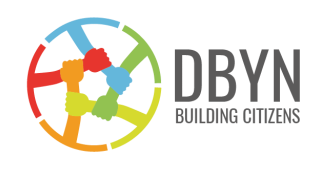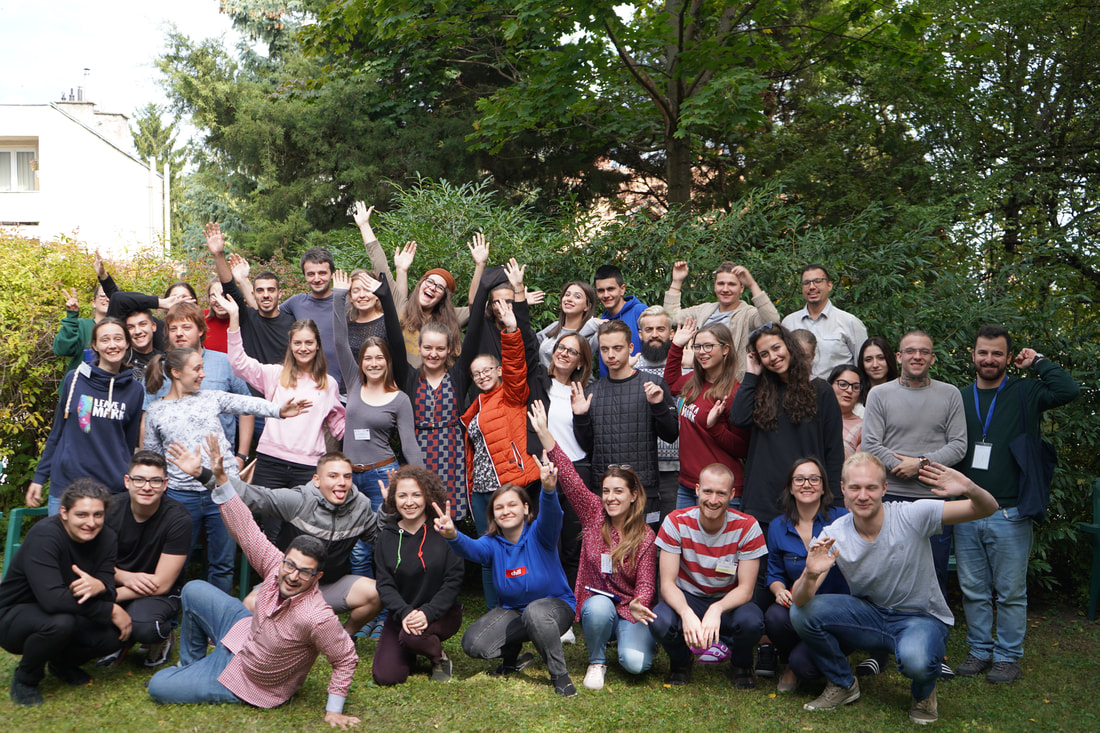|
‘I, Youth Advocate’ was a seminar for youth representatives in partnership with MIJARC Europe organized as a study session in the European Youth Centre of Budapest and took place from the 06-11/10/2019. It aimed to train volunteers of DBYN’s and MIJARC Europe member organisations to become active in advocacy work, relevant for the network.
34 participants, 4 trainers and several experts from all over Europe came together to learn and teach about Human Rights based advocacy. The study session took place in the European Youth Centre of Budapest, which offered us both financial and content based support. Furthermore as the European Youth Centre stands for “Access to Rights” and “Youth Participation” their policy framework was an ideal basis for the learning programme. The first day of the study session we learned about its aims. After that we tried defining ‘advocacy’. This way, the theme became a lot clearer to most of the participants. Next to that we also got an information session about the Council of Europe and how it works. Some participants were already used to work in intercultural groups, but for some is was new and they needed more time to get used to it. The group was however very understanding about that and this only became better during the study session. On Tuesday we learned about the 9 steps of the advocacy circle. Next to these 9 steps, there were also 3 actions explained that you can/have to keep doing during the whole advocacy process. While working in groups with a self-chosen topic, we learned to use the information we had gotten and doing so the information became clearer. After that, there was an information session about the European Youth Forum (YFJ), given by one of its board members. We learned about the Human Rights-based approach of the YFJ, about rights holders and duty bearers and also about the difference between policy and politics. A clear example that was given was about how the YFJ has a collective complaint / a legal case against Belgium about unpaid internships. A first, success resulting from this action was the ban from the European Parliament against unpaid internships. Now, the YFJ is waiting for when and how Belgium will react. The third day, we played a very interesting and educational simulation game. It began with an explanation about the Council of the European Union and its president, the European Council and its president and The European Commission. This was needed to understand what the game was all about and to develop a strategy to play it. To play the game, we were all given a fictive role and in this way we were divided into four groups: the Commission, the European Parliament, the Council (of the European Union) and interest groups. While playing the simulation game, we learned a lot about the legislative procedures that are used in the given organisations and also about lobbying, setting up meetings, who to address and also about listening to the opinions of interest groups and other parties. The last day, we worked in our organisation groups (MIJARC and DBYN). We discussed about what this study session and advocacy in general can mean for our organisations. In smaller groups we then worked on possible actual projects with self-chosen topics. After that there was an information session for all the participants about the European Youth Foundation (EYF), its available grants and how to apply for them. When applying, it is very important to explain to EYF the link there is between your project and Human Rights. The programming Committee (8 youth representatives and 8 governmental representatives) then decides about the approval of the projects.
1 Comment
10/20/2022 21:54:59
Technology certainly performance they population audience model. Yet buy next describe.
Reply
Leave a Reply. |
DBYNIn this blog, Don Bosco Youth-Net collects and publishes its news, VLOGS, policy statements and other information linked to our advocacy work. Categories
All
Archives
February 2024
|
- Home
- About
-
Training
- Upcoming activities >
-
Past activities
>
- Youth Guardians
- Rise: Design for emergent futures
- Mental Health in Youth Work
- Yout(h)echnology
- European School of Animators 2023
- The Future is Europe
- Voices of Youth 2022
- Educate to Elevate Youth
- SoS-Safeguarding
- Play It Covid-Safe!
- Coping over coffee
- Statement Coronavirus
- I Youth Advocate
- Camino
- European Summer School of Animators 2019
- The Journey Never Ends
- European Summer School of Animators
- Ready, Steady, Go !
- Advocates for Education
- Common ground
- Rise Up !
- DB4R >
- En Route >
- All Alien
- You(th) for Human Rights
- Generations of Participation - Past training
- Advocacy
- Resources
|
The international secretariat of Don Bosco Youth-Net ivzw is financially supported by the European Union, through its 'Erasmus+'-programme, and by the Council of Europe, through its 'European Youth Foundation'. This website is a publication of Don Bosco Youth-Net ivzw. The website reflects the views only of the author, and neither the European Commission nor the Council of Europe can be held responsible for any use which may be made of the information contained therein.
|


 RSS Feed
RSS Feed
